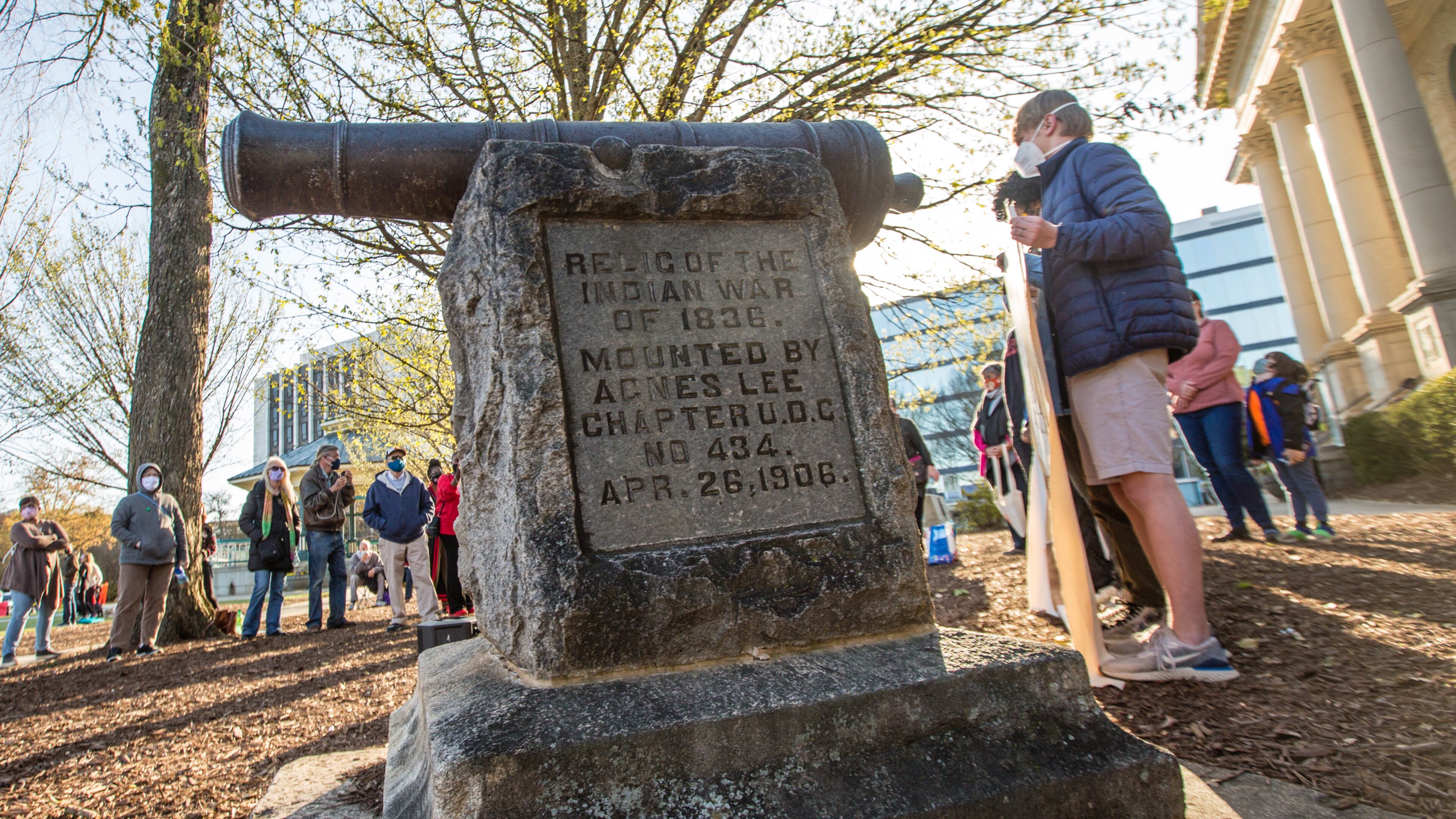DeKalb commissioners join push for removal of controversial cannon

In a carefully worded resolution, two DeKalb County commissioners have started the process that could lead to the removal of a controversial cannon from the downtown Decatur square.
Commissioners Ted Terry and Mereda Davis Johnson introduced on Tuesday the resolution targeting what activists have called the “genocide cannon,” an aged piece of artillery that has sat on a granite perch near the square since it was installed more than a century ago.
The cannon is purported to be a “relic of the Indian War of 1836,” an apparent reference to the bloody conflicts that ensued when the U.S. Army and militias from Georgia and Alabama forced thousands of Muscogee people from their native lands.
A local chapter of the United Daughters of the Confederacy placed the cannon near what’s now known the DeKalb Historic Courthouse in 1906, two years before it erected a nearby 30-foot obelisk honoring the Lost Cause.
The larger tribute to white supremacy and the Civil War South was removed by the county in June 2020, after a ruling from now-retired Superior Court Judge Clarence Seeliger deemed it to be a public nuisance.
Once the obelisk was removed, local advocates that include a group of Decatur High School students and the Beacon Hill Black Alliance for Human Rights turned their full attention to the cannon. For more than a year they’ve pushed officials to take it down, calling it a symbol of racism that glorifies the forced relocation and mass murder of Native Americans.
Several protests have been held in recent months, and an online petition supporting its removal has garnered more than 1,800 signatures.
Last December, the Decatur City Commission approved a resolution supporting the cannon’s removal.
The cannon, though, rests on DeKalb County property. And it’s a little complicated.
According to the resolution introduced Tuesday, there is no documentation of the cannon ever being formally donated to DeKalb County, nor any indication that it should be considered public property. Its current-day ownership is unclear.
The resolution also raises questions about the cannon’s authenticity, saying it has an “unknown origin and provenance and thus cannot be accurately attributed or dedicated to any particular historical or military entity or event, including the Indian War of 1836.”
The cannon’s own inscription calls it a relic, not a memorial or anything similar.
All of those are potentially crucial distinctions should the cannon’s removal be challenged in court. The same Georgia law that makes it nearly impossible to remove Confederate monuments also restricts what local governments can do to alter or relocate other military tributes.
“It’s not a monument, it’s a relic,” Terry, the resolution’s co-sponsor, told The Atlanta Journal-Constitution. “And a relic whose authenticity is even in question.”
The resolution could be considered by DeKalb’s full Board of Commissioners as soon as two weeks from now.
If approved, it would authorize the county to put the cannon in storage and place an ad in the county legal organ asking for the “rightful owner(s)” to come forward and claim it.



